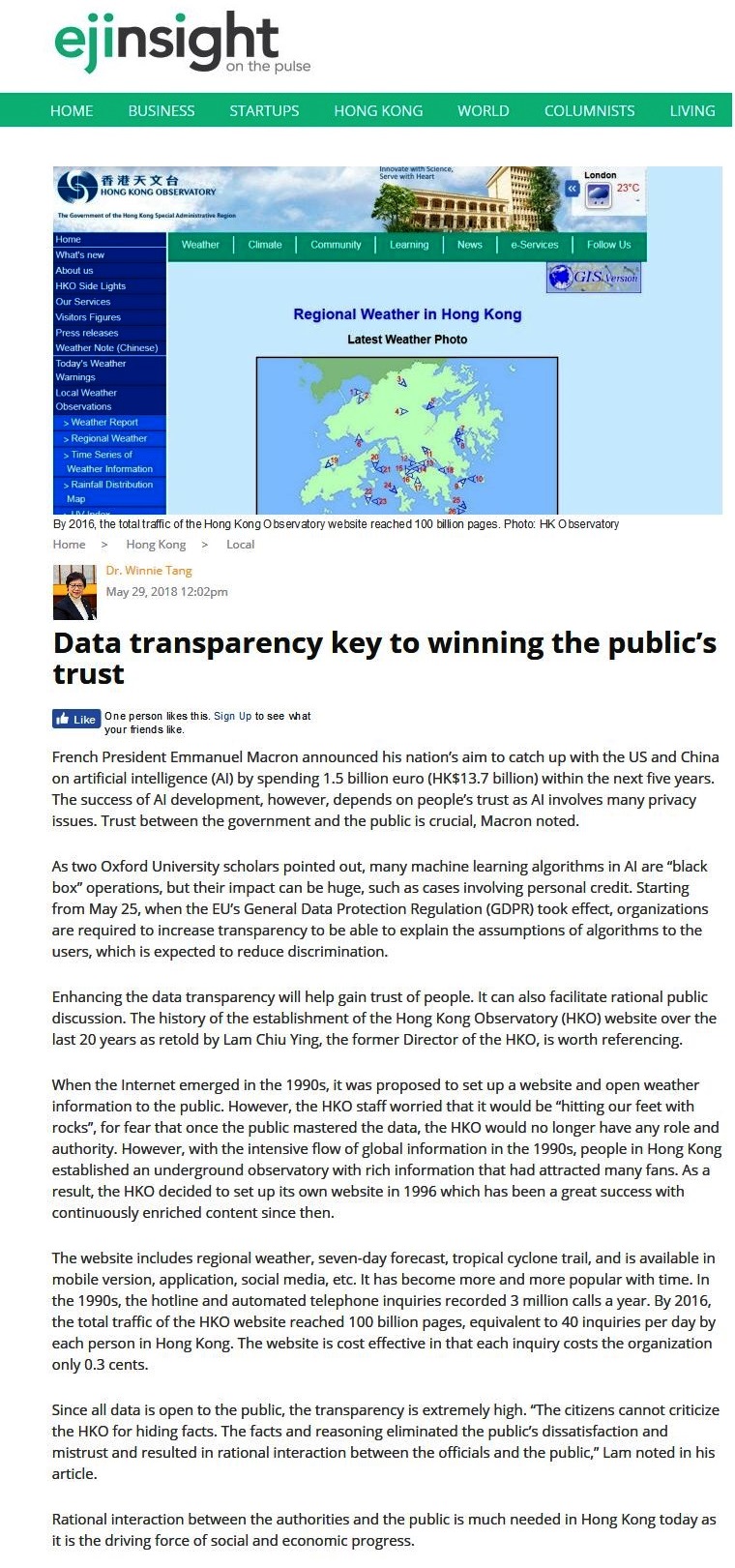網上版請按此

Data transparency key to winning the public's trust
French President Emmanuel Macron announced his nation's aim to catch up with the US and China on artificial intelligence (AI) by spending 1.5 billion euro (HK$13.7 billion) within the next five years. The success of AI development, however, depends on people's trust as AI involves many privacy issues. Trust between the government and the public is crucial, Macron noted.
As two Oxford University scholars pointed out, many machine learning algorithms in AI are "black box" operations, but their impact can be huge, such as cases involving personal credit. Starting from May 25, when the EU's General Data Protection Regulation (GDPR) took effect, organizations are required to increase transparency to be able to explain the assumptions of algorithms to the users, which is expected to reduce discrimination.
Enhancing the data transparency will help gain trust of people. It can also facilitate rational public discussion. The history of the establishment of the Hong Kong Observatory (HKO) website over the last 20 years as retold by Lam Chiu Ying, the former Director of the HKO, is worth referencing.
When the Internet emerged in the 1990s, it was proposed to set up a website and open weather information to the public. However, the HKO staff worried that it would be "hitting our feet with rocks", for fear that once the public mastered the data, the HKO would no longer have any role and authority. However, with the intensive flow of global information in the 1990s, people in Hong Kong established an underground observatory with rich information that had attracted many fans. As a result, the HKO decided to set up its own website in 1996 which has been a great success with continuously enriched content since then.
The website includes regional weather, seven-day forecast, tropical cyclone trail, and is available in mobile version, application, social media, etc. It has become more and more popular with time. In the 1990s, the hotline and automated telephone inquiries recorded 3 million calls a year. By 2016, the total traffic of the HKO website reached 100 billion pages, equivalent to 40 inquiries per day by each person in Hong Kong. The website is cost effective in that each inquiry costs the organization only 0.3 cents.
Since all data is open to the public, the transparency is extremely high. "The citizens cannot criticize the HKO for hiding facts. The facts and reasoning eliminated the public's dissatisfaction and mistrust and resulted in rational interaction between the officials and the public," Lam noted in his article.
Rational interaction between the authorities and the public is much needed in Hong Kong today as it is the driving force of social and economic progress.
Dr. Winnie Tang
Honorary Professor, Department of Computer Science, The University of Hong Kong